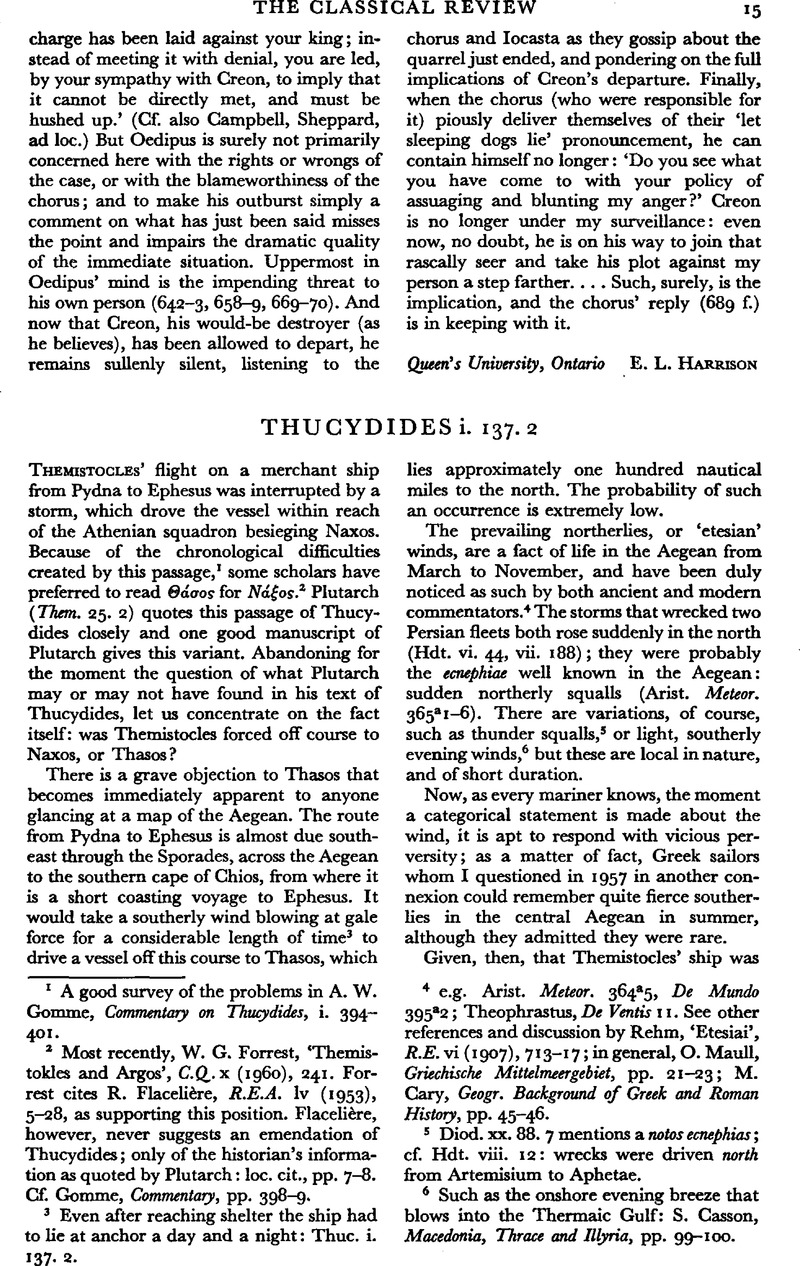Article contents
Thucydides i. 137. 2
Published online by Cambridge University Press: 27 February 2009
Abstract

- Type
- Review Article
- Information
- Copyright
- Copyright © The Classical Association 1962
References
page 15 note 1 A good survey of the problems in Gomme, A. W., Commentary on Thucydides, i. 394–401.Google Scholar
page 15 note 2 Most recently, Forrest, W. G., ‘Themistokles and Argos’, C.Q. x (1960), 241Google Scholar. Forrest cites Flacelière, R., R.E.A. lv (1953), 5–28Google Scholar, as supporting this position. Flacelière, however, never suggests an emendation of Thucydides; only of the historian's information as quoted by Plutarch: loc. cit., pp. 7–8 Cf. Gomme, , Commentary, pp. 398–399.Google Scholar
page 15 note 3 Even after reaching shelter the ship had to lie at anchor a day and a night: Thuc. i. 137. 2.
page 15 note 4 e.g. Arist. Meteor. 364a5, De Mundo 395a2; Theophrastus, De Ventis 11. See other references and discussion by Rehm, , ‘Etesiai’, R.E. vi (1907), 713–717Google Scholar; in general, Maull, O., Griechische Mittelmeergebiet, pp. 21–23Google Scholar; Cary, M., Geogr. Background of Greek and Roman History, pp. 45–46.Google Scholar
page 15 note 5 Diod. xx. 88. 7 mentions a notos ecnephias; cf. Hdt. viii. 12: wrecks were driven north from Artemisium to Aphetae.
page 15 note 6 Such as the onshore evening breeze that blows into the Thermaic Gulf: Casson, S., Macedonia, Thrace and Illyria, pp. 99–100.Google Scholar
page 16 note 1 R.E.A. lv. 6–7.
page 16 note 2 There are no subtleties of navigation involved here. Modern caïques, many of them without instruments of any kind, sail in straight lines, and one assumes their ancestors did the same.
- 1
- Cited by


